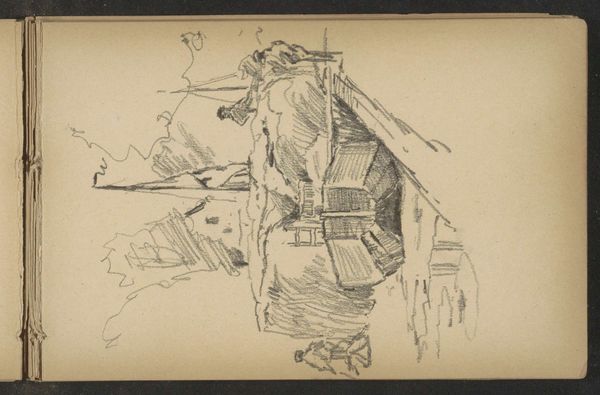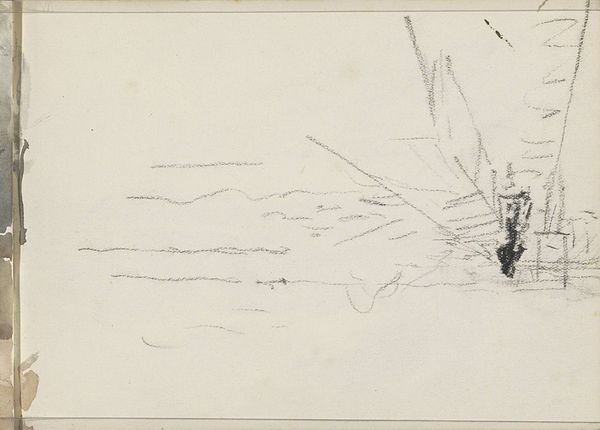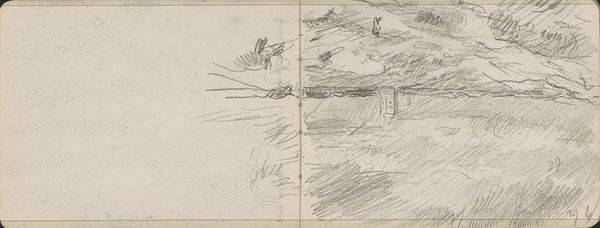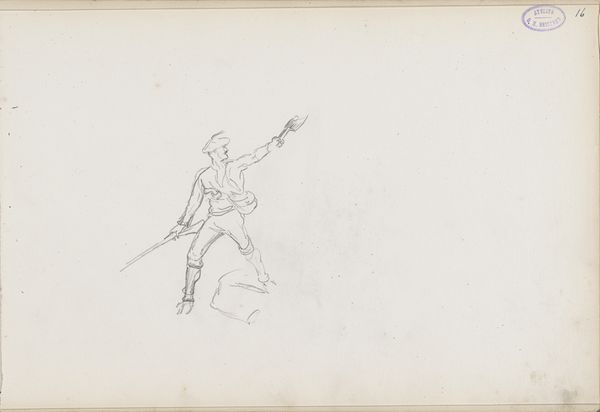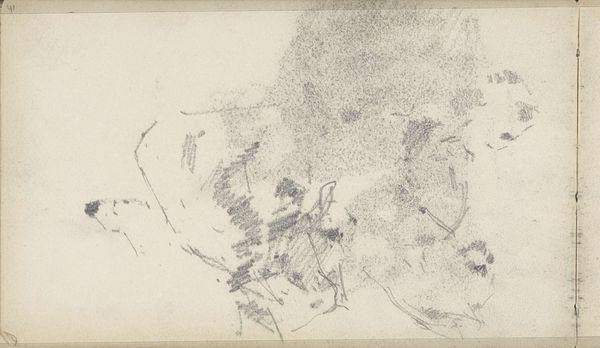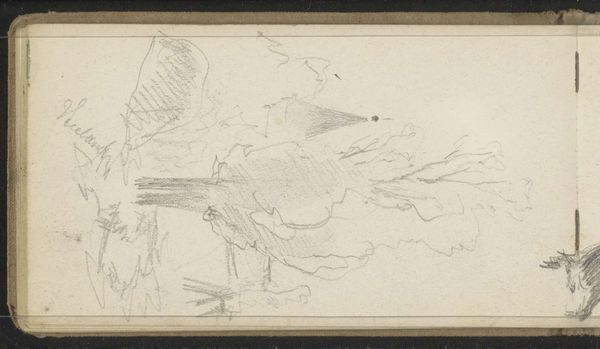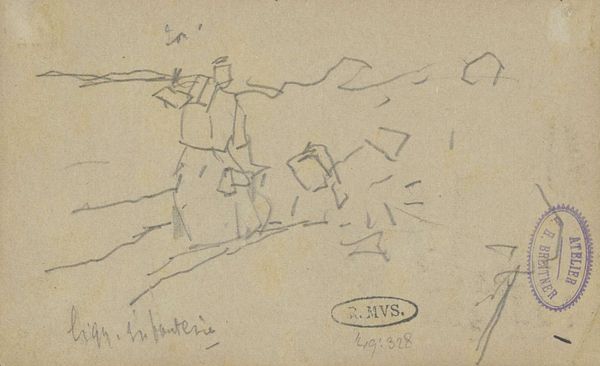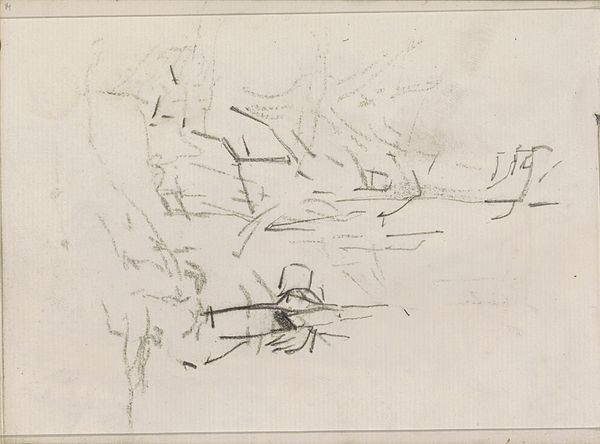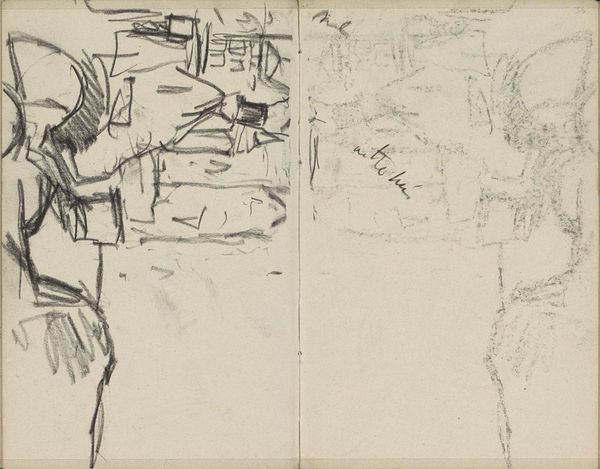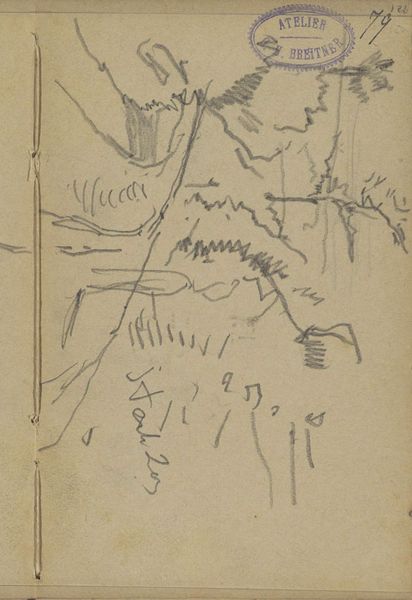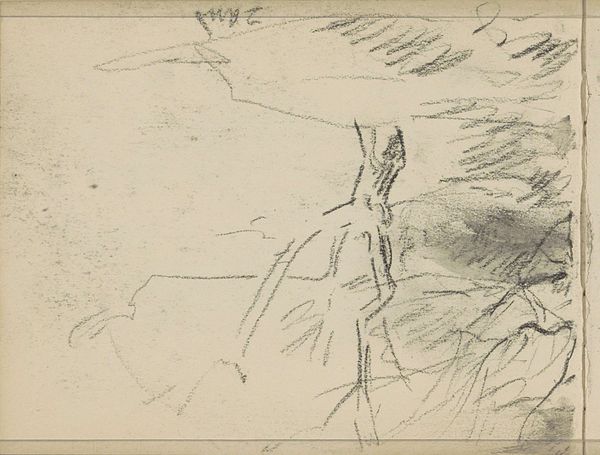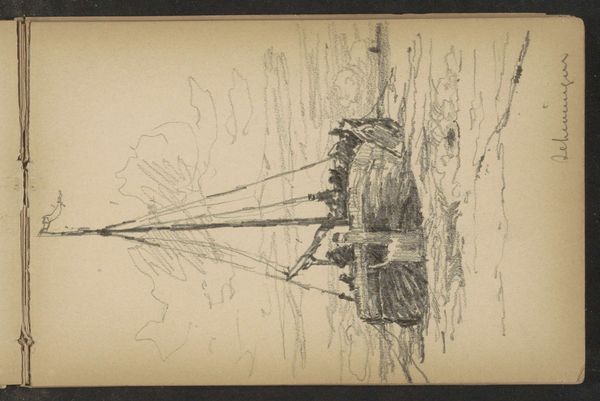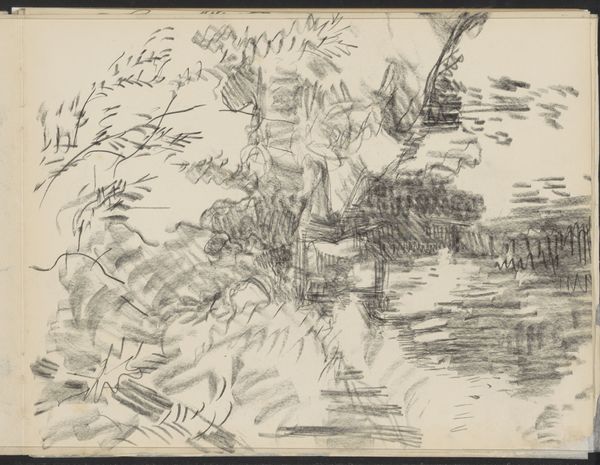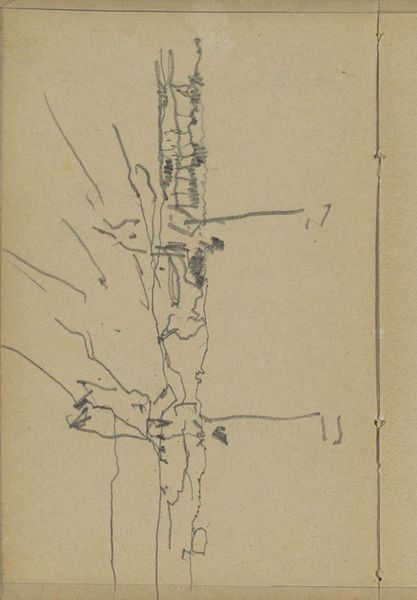
drawing, pencil
#
drawing
#
ink drawing
#
impressionism
#
pen sketch
#
sketch book
#
landscape
#
personal sketchbook
#
ink drawing experimentation
#
pen-ink sketch
#
pencil
#
pen work
#
sketchbook drawing
#
storyboard and sketchbook work
#
sketchbook art
Copyright: Rijks Museum: Open Domain
Curator: Alexander Shilling's "Zeilschip aan een kade," likely created between 1888 and 1889, captures a sailing ship at dock. What stands out to you? Editor: The immediate sense is one of transience, or even precarity. The rapid, almost frantic lines of the sketch lend it a restless quality. Curator: Indeed, it’s sketched using both pencil and ink, demonstrating a swift capture of the scene. Consider the late 19th century; increased industrialization and shifting socio-economic landscapes deeply impacted maritime communities and how they viewed their role in larger cultural imaginaries. Was Shilling capturing the change? Editor: That is interesting. The sketchbook feel also creates intimacy. The rough quality also suggests the lived experiences of working-class maritime communities and perhaps resists an overly romantic portrayal of ship life in general. Who might be present in this very immediate perspective? Curator: That's a very astute observation. While it’s challenging to determine social position in the sketch itself, examining Shilling's background allows some room for speculation. What institutions were available for artists such as him? How was life experienced at this specific place and time? What do we make of the absence of explicit detail, encouraging our active imagination to fill it? Editor: Perhaps Shilling uses the immediacy of the pen and ink to address the fleeting nature of global industrial advances as well. There is something very "in process" about it. The question then becomes not so much 'what' is it?' but more 'what does it mean, or risk?' in its contemporary, increasingly mechanized world? Curator: Precisely. This sketch encourages reflection on how society shapes art and artists and their response to societal forces. The piece makes room to view the relationship between commerce, labor, and environmental shifts underway at the time, making it intensely relevant in current socio-political and ecological discussions. Editor: For me, reflecting on how we "capture" change, in sketchbooks and beyond, will stay with me after this discussion. Curator: Absolutely. "Zeilschip aan een kade" leaves me pondering how personal observations are shaped by grand societal forces and vice versa, making us reconsider the very act of observation itself.
Comments
No comments
Be the first to comment and join the conversation on the ultimate creative platform.
